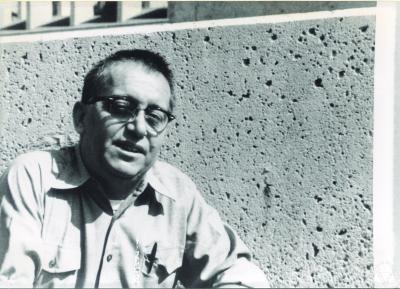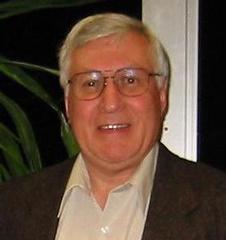<Back to Index>
- Mathematician Michael Darwin Morley, 1930+
- Mathematician Howard Jerome Keisler, 1936
PAGE SPONSOR

Michael Darwin Morley (September 29, 1930 - October 11, 2020) was an American mathematician, professor emeritus at Cornell University. His research was in advanced mathematical logic and model theory, and he is best known for Morley's categoricity theorem, which he proved in his Ph.D. thesis "Categoricity in Power" in 1962.
Morley was born in Youngstown, Ohio, on September 29, 1930. He
obtained his BS in mathematics from Case Institute of Technology in 1951
and his PhD in mathematics from the University of Chicago in 1962.
Morley's formal PhD advisor at the University of Chicago was Saunders
Mac Lane, but he completed his thesis under the guidance of Robert
Vaught at the University of California, Berkeley. His dissertation was
titled Categoricity in Power.
Morley was an assistant professor at the University of Wisconsin -
Madison from 1963 to 1967. He joined the faculty at Cornell University
in 1967 as an associate professor, was promoted to professor in 1970,
and became a professor emeritus in 2003. He served as president of the
Association for Symbolic Logic from 1986 to 1989.
Morley received the 2003 Leroy P. Steele Prize for Seminal Contribution
to Research from the American Mathematical Society for his 1965 paper
"Categoricity in Power". This paper, his doctoral dissertation,
introduced Morley rank and proved Morley's categoricity theorem.
Morley died on October 11, 2020, in Sayre, Pennsylvania.

H. Jerome Keisler (3 December 1936, Seattle) was an American mathematician, professor emeritus at University of Wisconsin – Madison. His research included model theory and non - standard analysis.
His Ph.D. advisor was Alfred Tarski at Berkeley; his dissertation is Ultraproducts and Elementary Classes (1961).
Following Abraham Robinson's work resolving what had long been thought to be inherent logical contradictions in the literal interpretation of Leibniz's notation that Leibniz himself had proposed, that is, interpreting "dx" as literally representing an infinitesimally small quantity, Keisler published Elementary Calculus: An Infinitesimal Approach, a first - year calculus textbook conceptually centered around the use of infinitesimals, rather than the epsilon, delta approach, for developing the calculus.
He is also known for extending the Henkin construction (of Leon Henkin) to what are now called Henkin - Keisler models.
He held the named chair of Vilas Professor of Mathematics at Wisconsin.
Among Keisler's graduate students, several have made notable mathematical contributions, including Frederick Rowbottom discovered Rowbottom cardinals. Several others have gone on to careers in computer science research and product development, including: Kevin J. Compton, a professor of computer science at the University of Michigan, Curtis Tuckey, a developer of software - based collaboration environments; Joseph Sgro, a neurologist and developer of vision processor hardware and software, and Edward L. Wimmers, a database researcher at IBM Almaden Research Center.